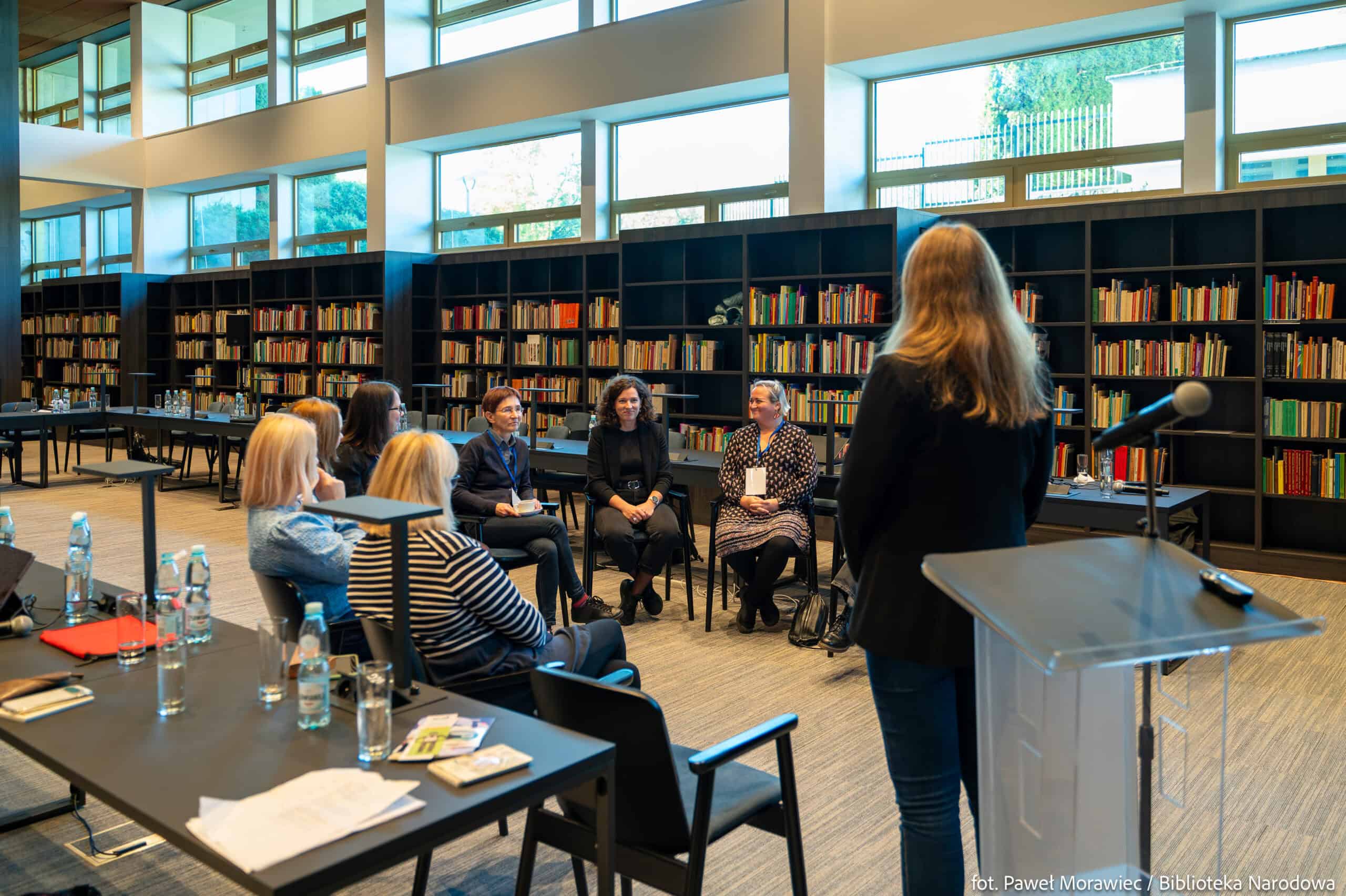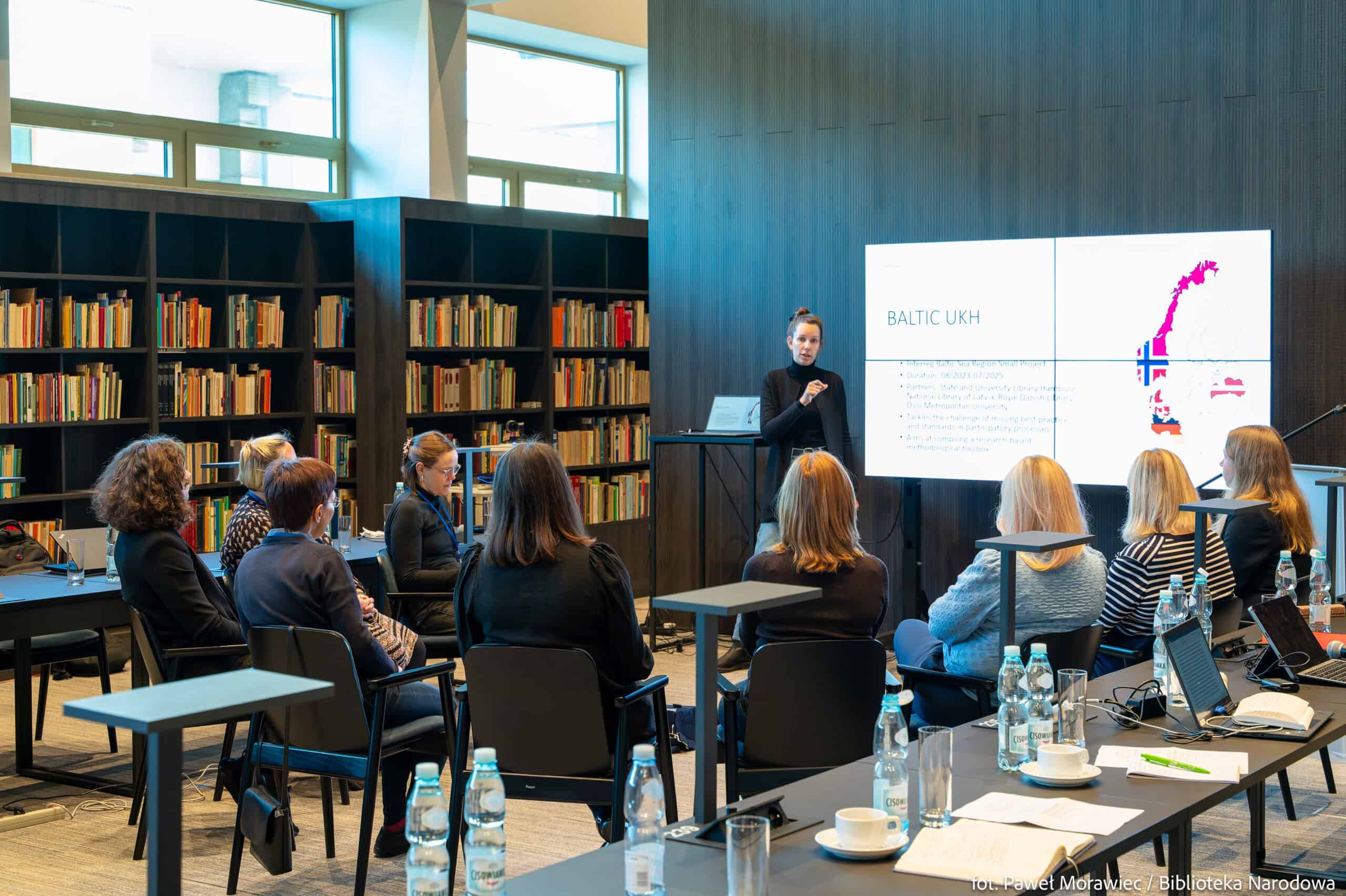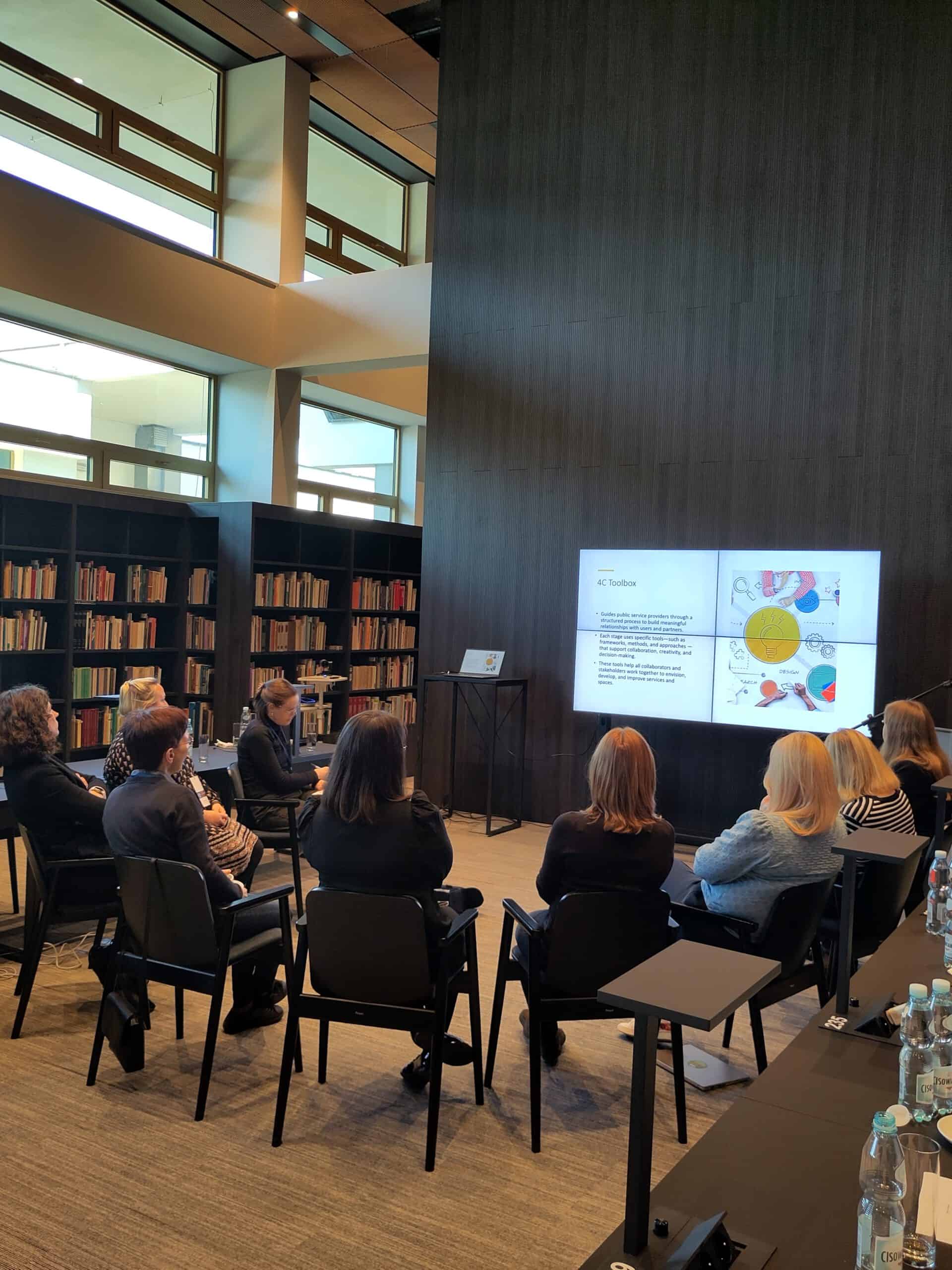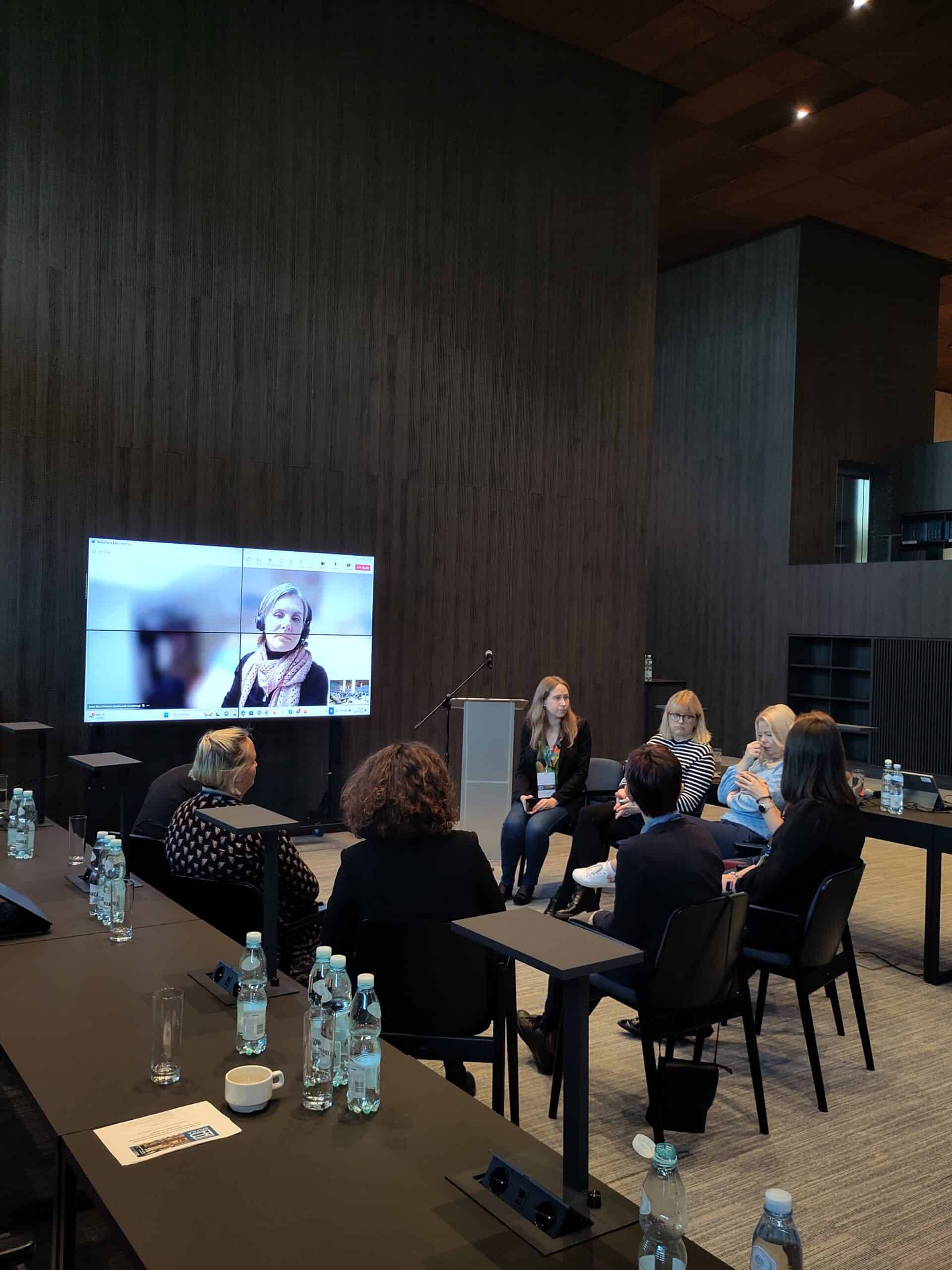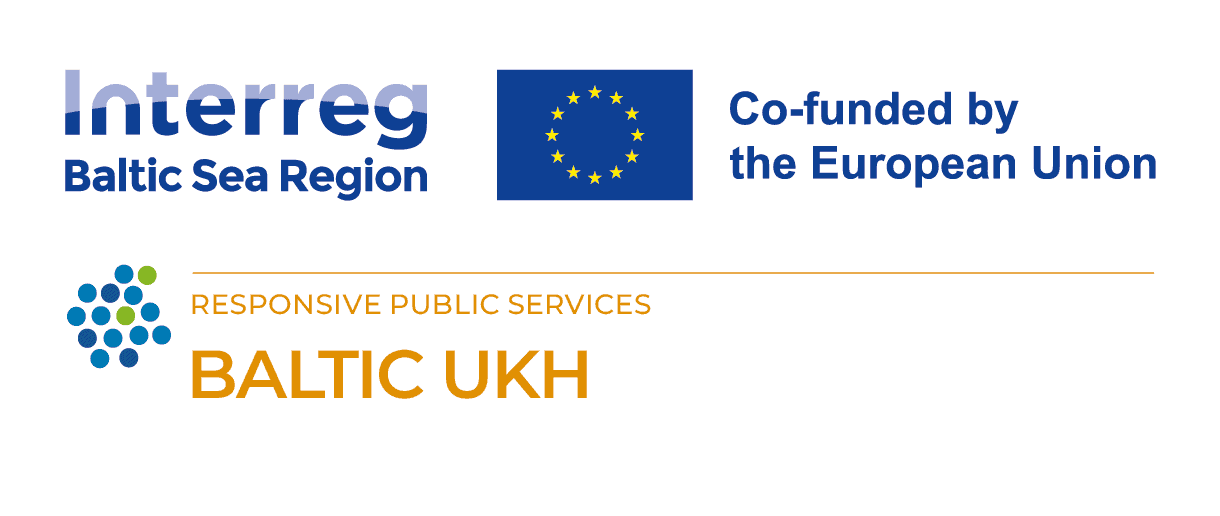
Redesigning Libraries for Diverse Communities: Round Table at the Bibliotheca Baltica Symposium in Warsaw
01 November 2024
Members of the BALTIC UKH project team took up on this opportunity to discuss preliminary findings of the toolbox during a round table on “Redesigning Libraries for Diverse Communities”. Seven people from National (4), Academic (1) and Public Libraries (2) joined our round table with a general motivation of learning from each other about international projects, community engagement and library development.
We started our round table with a presentation on BALTIC UKH summarizing key points of the project and outlining the challenge of missing best practice examples for participatory processes in libraries and other public institutions as a starting point for our project and toolbox. Next, a recording of a presentation of the toolbox guided the participants through its development process, the four pilot projects and preliminary findings. Those included categories such as “aims and goals”, “types of engagement”, “contributions”, “roles and responsibilities” and “evaluation” as crucial aspects to think about and reflect on before, during and after your participatory project. The focus for the project team while developing the toolbox is a learning process in general with the aim to provide best practice examples and tips to guide collaborative processes. The final question whether the toolbox would be beneficial for them was met with general agreement on the usefulness of the toolbox not only for them personally but for the library community of the Baltic Sea Region in general.
There was also space to share experiences: In Estonia there is a class during the Master’s degree on service design were the research is done and changes are implemented by the students themselves. This has proven to be very beneficial as it offers different perspectives and visions of spaces and services where the students are basically their own focus group. An example from a university library in Poland shows the different types of collaboration. Even though students were not engaged during the planning process, they are now involved in the co-production of the new space. One result from this process is the realization that “loud” reading rooms, were people can study together, have coffee and snacks are particularly attractive and they draw more and new people into the library. The aim of the British Library is to redesign the library as a communal space that can be used by the students from the nearby University College but also by the people who live in the vicinity of the library. Several attempts to engage the local communities were made such as cultural events or an appropriation of the outside spaces next to the library with chairs which have proven to be quite successful.
Overall, it was a vivid discussion and exchange of experience with interesting insights from other participatory projects from the participants of the round table. BALTIC UKH’s main deliverable, the research-based methodological toolbox, seems to hit a nerve in the library community and is very much anticipated.






